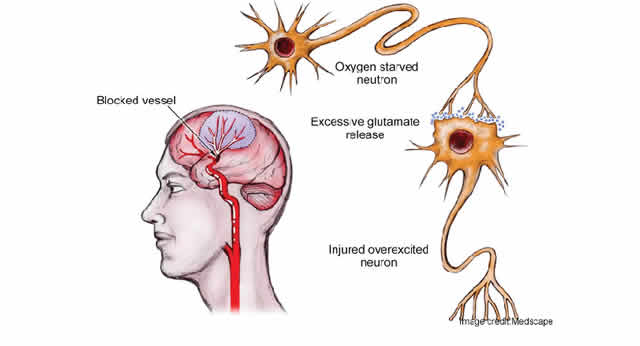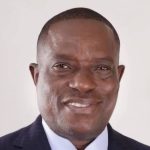A Professor of Radiology, in the Faculty of Clinical Sciences, College of Medicine. University of Port Harcourt, Rivers State, Prof. Chinwe Onwuchekwa, has called for the establishment of stroke and trauma centres in all states of Nigeria, as well as budget inclusion to subsidise cost of treatment for underprivileged sufferers.
She said such centres should be manned by well-trained staff to manage the patients suffering from the ailments.
Prof. Onwuchekwa, who is the head of the department of radiology and the first female radiology professor in Rivers, stated this during an interview with South-South PUNCH shortly after delivering the 201st inaugural lecture of the University of Port Harcourt titled ‘Unravelling the Mystery of Grey Shadows, Pains of the Head and Low Back’ at the institution in Port Harcourt.
She stated, “Government should set up stroke and trauma centres in every state of the nation, where the staff are highly trained, specifically to manage stroke and trauma patients.
“Funds to support the needs of the centres should be included in both the state and the national budget in order to subsidise the cost of treatment for those who may not afford the fees for their care in these centres. Patients managed in these specialised centres do well to recover faster with good outcomes.”
The 201 inaugural lecturer also said social and physical rehabilitation is very important for people who have survived stroke, head injury, cancer surgery and treatment.
“Rehabilitation Centre should be sited in a strategic area in every state where it can easily be accessed by members of the public. These centres should be funded by either state or federal government to make the cost affordable for the public.”
She said most cases of head injuries are caused by road crashes due to the deplorable state of roads in the country, saying there are no good roads and drivers are not well trained, while many people drive without licenses.
“Like me, I have not gotten my renewal of my license, which I paid for since, “ she said.
She added, “Good road network and adequate evaluation of drivers and vehicles by the relevant government authorities. The roads should be maintained regularly, with traffic warning signs at strategic points.”
Prof. Onwuchekwa emphasised the need for proper training and testing before driver’s license is issued, adding, “Vehicles used for commercial transportation should be properly evaluated before registration for us. These will reduce the rate of road traffic accidents and head injuries.’’
Onwuchekwa, who is the first female professor of radiology at UNIPORT, explained that lecturers look forward to delivering inaugural lectures after appointment as a professor because it affords one the opportunity to let the world know that one is now a professor and what one did to attain that academic height.
“So, this inaugural lecture what I did was because my area in Radiology is Neuroradiology. So I decided to talk about some of the research I did in Neuroradiology and Radiology in small parts.
Explaining the title of her lecture, she said, “Grey shadows. For instance in the past when we do black and white pictures what you see is the black area, white area.
“But when you look at the images you don’t see just black and white, there are some other colours in between the black and white. That is what gives the grey appearance. So the images from the Radiological machines come out as black and white images with different shades of grey depending on what is there.
“So it’s that grey shadow produced by the tissues. It could be cancer tissue, it could be normal tissue, it could be air. So with that shadow, we are able to say this is what is there,” she explained.
“Our work is to diagnose the lesions in those images and then advise the clinicians, who are the doctors managing the patient, because we don’t manage, to tell them, This is what your patient has; this is what you’re supposed to do, and they follow our advice because if they don’t follow our advice and anything goes wrong, it is already written because our report is usually written and you cannot change it.”
“So it is something that if you don’t follow and you go wrong and your patient dies, you’re in trouble because the Radiologist’s report is there to expose you,” she stated.
Shedding light on the title of the lecture, Prof. Onwuchekwa said, “Most of the diseases of the Central Nervous System are seen in the head and part of it at the lower back because of the nerves that leave the spinal cord to supply the body.
“So in this head so many things can happen as I mentioned. I talked about stroke, talked about headache, it’s in the head. I talked about cancers of the head and neck region, it’s on the back and trauma, head injuries. People die when they have head trauma.”
The don continued, “When stroke occurs, there is a mental and physical disability. It is like a heavy load on the head of both the patient and the relatives. It is a thing of the head awaiting cross-section imaging to unravel the mystery of the grey shadows.”
Most people, she said, “When they have trauma in other parts of the body they survive; but once it’s the head there is a problem. The person may become unconscious, the person may die; the person may become maimed for life, you know.
“The person may have some neurological deficits, and they can’t carry themselves because it’s the head and spinal cord that control the body. If anything happens to them, then there must be problems with other parts of the body.”
Earlier in his remarks, the Vice Chancellor of the University of Port Harcourt, Prof. Georgewill Owunari, commended the lecturer for displaying deep insight in her field of study and for what he described as her “brilliant, critical, and deeply humane lecture.”
He stated, “I salute the scholarship, the dedication, and the clarity of purpose that Professor Regina Chinwe Onwuchekwa has displayed before us today.
“This lecture has done more than just present radiological facts. It has confronted us with the truth that behind every grey shadow on the screen is a life, a hope, a struggle, and also a silent cry for healing.”
The VC further said Prof. Onwuchekwa has demonstrated that radiology is not simply a technical discipline but the height of modern medicine.
“To our policy makers who are here, who have heard her speak, may I emphasise that investing in radiology is investing in life itself. For every stroke detected early, for every cancer unmasked in time, for every mother’s pain explained by imaging, add years to life and life to years.”









